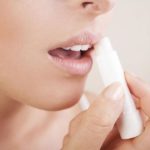The beauty quiz helps women to take note of the right skincare secrets that bring fresh and radiant skin.
Below is the beauty quiz to test your knowledge about daily skincare:
1. Basic skincare routine:
A. Cleanse – Moisturize – Protect
B. Moisturize – Protect
C. Cleanse – Moisturize
D. Cleanse – Protect
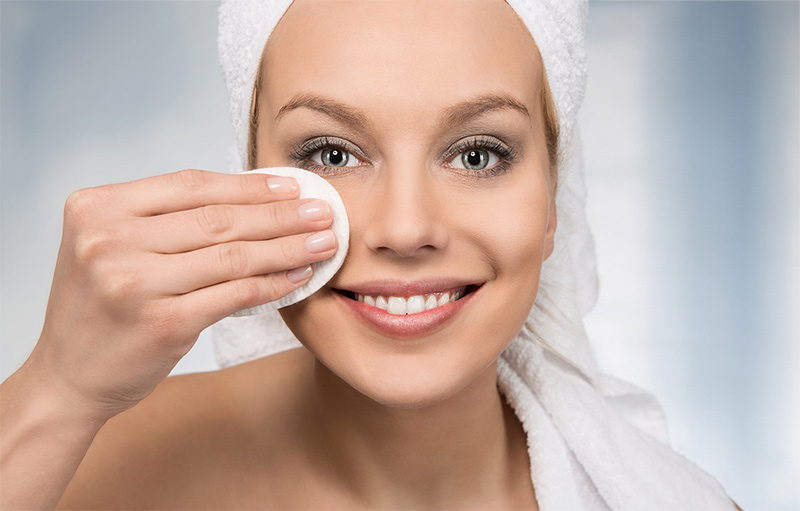
ANSWER: A. CLEANSE – MOISTURIZE – PROTECT
Every skin type needs to follow these 3 basic skincare steps. With cleansing and protecting, we are clear about their functions. But for moisturizing, some of you might wonder why oily skin needs moisturizer. You should know that oily skin is caused by lack of moisture. Therefore, using the right moisturizer daily will help control the oiliness and prevent greasy skin.
2. Should you use a makeup remover?

ANSWER: YES
Facial cleanser only removes external impurities such as dust and excess oil. That’s why it’s necessary to use a makeup remover to remove makeup, including primer, foundation, or sunscreen, from your skin. Even if you don’t wear makeup and only apply sunscreen.
3. After washing your face, should you rinse with warm water?
ANSWER: YES
After washing your face, it’s best to rinse it once with warm water to deeply cleanse the skin. Finally, rinse again with cool water to restore elasticity to the skin.
4. What kind of water do you use to wash your face?
A. Cold water
B. Ice water
C. Warm water
D. Very hot water
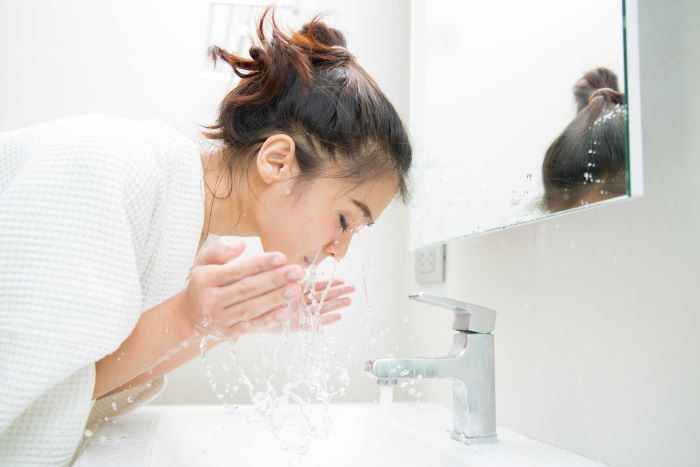
ANSWER: C. WARM WATER
Washing your face with warm water opens up the pores, pushes dirt and excess oil out, reducing clogged pores – which is the main cause of oily acne-prone skin. After cleansing the face, you should use cold water once again to tighten the pores and make the skin firmer.
In addition to opening up the pores for easier skin cleansing, washing the face with warm water also brings other benefits to the skin:
Helps improve blood circulation, stimulate metabolism, and promote a better skin regeneration process.
When washing the face with warm water, the exfoliating effect is better. The enzyme components in skincare products like cleansers will be activated and work more effectively, removing dead cells most efficiently.
5. Is it more important to apply moisturizer in the morning or at night?
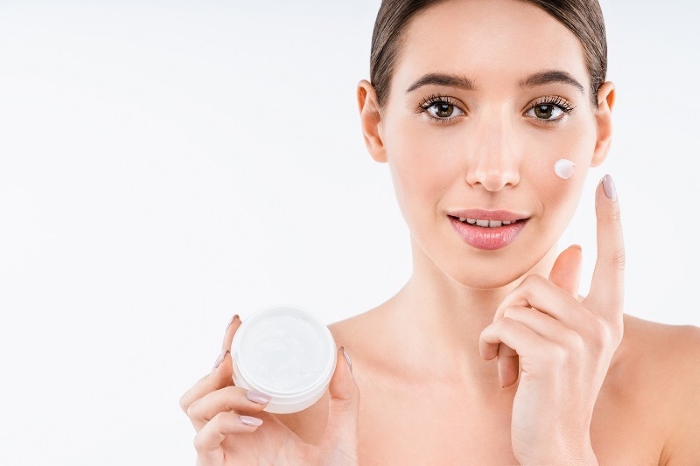
ANSWER: AT NIGHT
At night is the most suitable time for skincare. After cleansing your face, apply a thin layer of suitable moisturizer to keep your skin soft, smooth, and full of vitality.
6. When should you use sunscreen?
A. Every day
B. When going to the beach
C. When it’s sunny
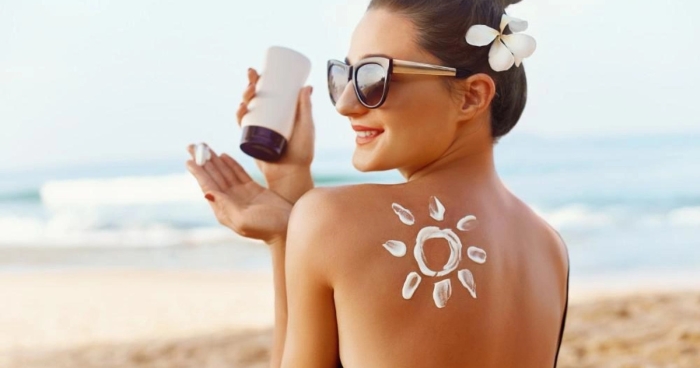
ANSWER: EVERY DAY
Don’t think that your skin is only harmed when the sun is out. Even on cloudy or rainy days, UV rays can still damage your skin. Depending on your needs, you can use chemical or physical sunscreens, but remember to choose at least SPF 30.
7. Does sunscreen prevent your skin from getting dark?
A. Yes
B. No
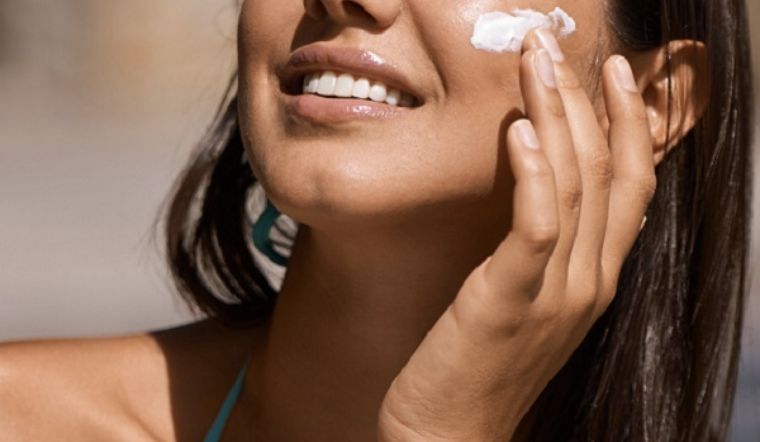
ANSWER: NO
No sunscreen today dares to promise to protect your skin perfectly white. The main purpose of sunscreen is to protect the skin’s structure from the harmful effects of UVA and UVB rays. Therefore, if you want to prevent tanning, you should limit your time outdoors from 10 am to 4 pm.
Cleansing removes impurities and excess oil from the skin, while moisturizing helps control oiliness and keeps the skin hydrated. Protecting the skin from the sun’s harmful UV rays is crucial to prevent damage and maintain its structure.
Yes, a makeup remover is necessary to effectively remove primer, foundation, and sunscreen from your skin. A facial cleanser may not be enough to remove all traces of makeup, so using a dedicated makeup remover ensures your skin is thoroughly cleansed.
Warm water is ideal for washing your face as it opens up the pores, allowing for a deeper cleanse. It also improves blood circulation and stimulates metabolism, leading to better skin regeneration. After cleansing, rinse with cold water to tighten the pores and firm the skin.
Applying moisturizer at night is the most beneficial for your skin. After cleansing your face, apply a thin layer of moisturizer to keep your skin soft, smooth, and full of vitality while you sleep.
Sunscreen should be applied daily, regardless of the weather or your planned activities. UV rays can damage your skin even on cloudy or rainy days, so it’s important to use sunscreen with at least SPF 30 to protect your skin.
No, sunscreen cannot guarantee that your skin will remain perfectly white. Its primary purpose is to protect your skin from the harmful effects of UVA and UVB rays, which can cause structural damage. To prevent tanning, limit your exposure to the sun between 10 am and 4 pm.




























